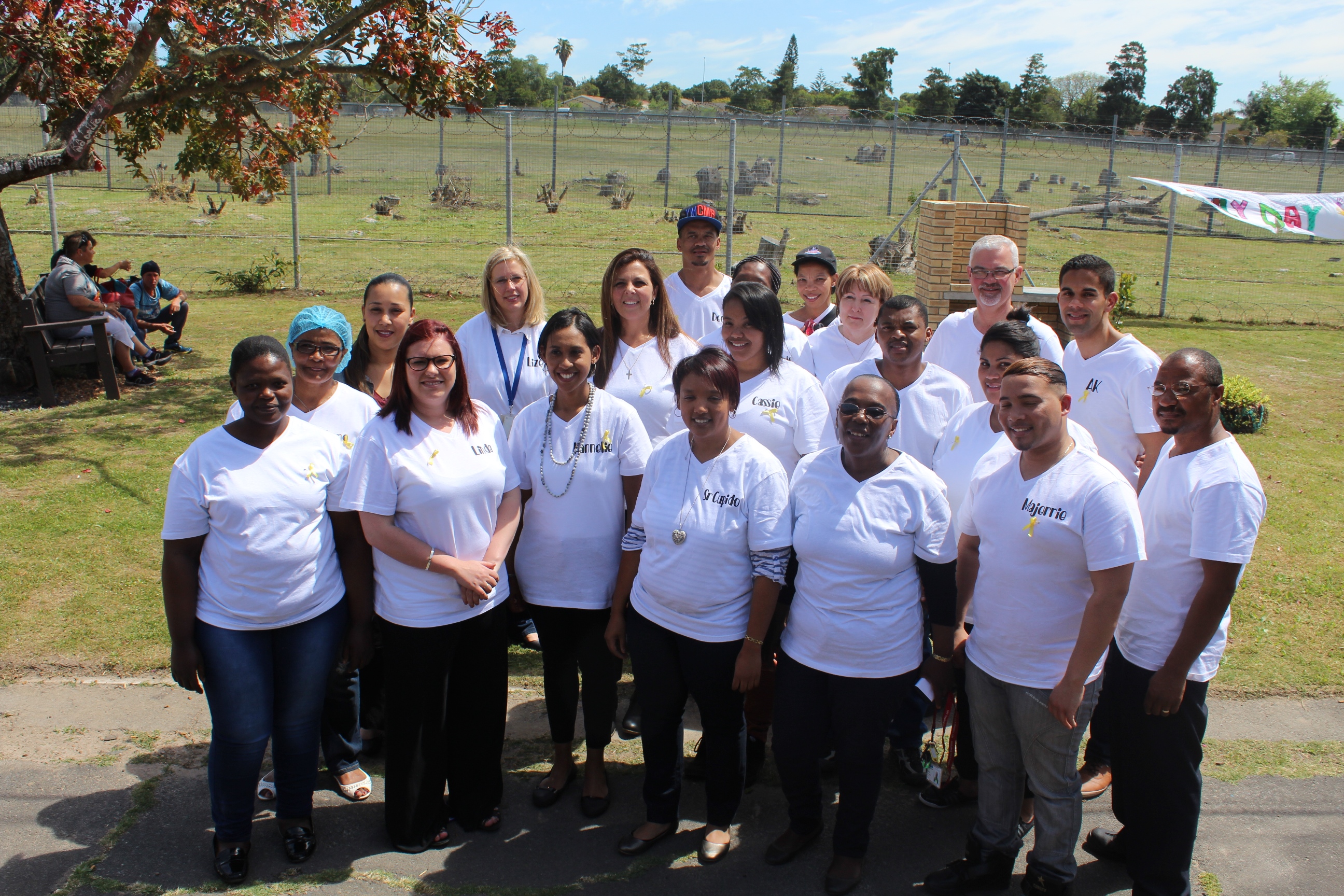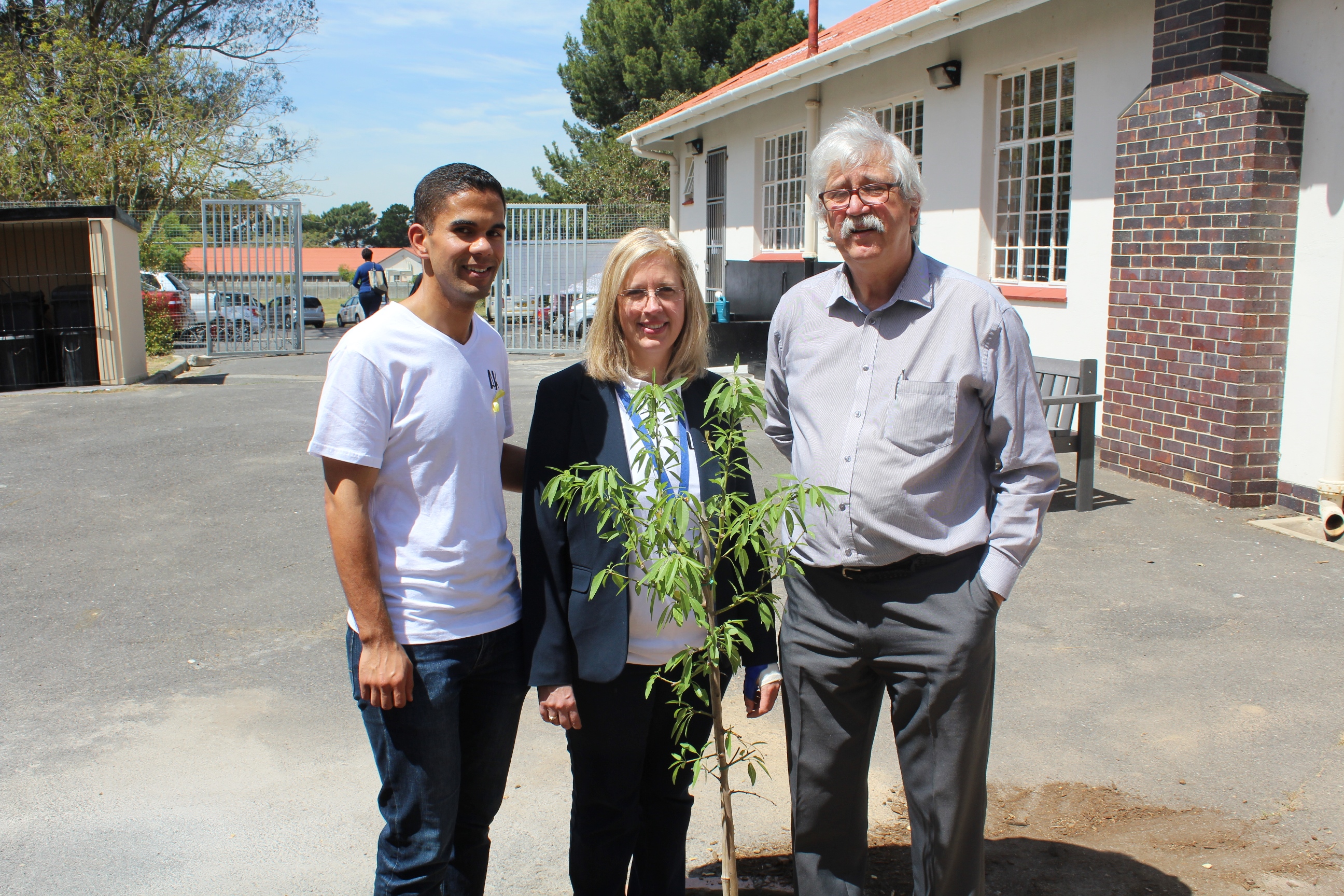
News
Stikland Hospital’s addiction services unit celebrates substance sobriety
Maintaining sobriety can pose a massive challenge to individuals recovering from an addiction. Recognising milestones along the journey to recovery is key in motivating individuals to maintain their sobriety.
In commemoration of World Mental Health Day, Stikland Hospital hosted a Family Day on Friday, 14 October 2016, for clients of the Addiction Services Units to celebrate their sobriety and the 10 year anniversary of the facility’s Opioid Detoxification Unit.
According to Charles Barnardo, CEO of Stikland Hospital, establishing these units dedicated to substance addiction has benefited many families in the Western Cape. “Stikland Hospital’s Addiction Services include an alcohol rehabilitation service, which focuses on supporting clients and equipping them with the necessary skills and knowledge that are essential to preventing a relapse. The Opioid Detoxification Unit provides medical detoxification from opioids like heroin and assists in preparing patients for the rehabilitation program that they attend after discharge from Stikland Hospital,” he says.
Barnardo acknowledges that substance abuse not only increases the burden of disease, but also compromises education outcomes, destroys families and fuels insecurity; all of which threatens economic growth and job creation.
“Substance abuse has a far-reaching detrimental effect with no exclusivity toward one particular group of people. Therefore, it is important to note that the treatment plans offered at the Addiction Service Units are open to all members of the public, not only those with a mental illness,”
Echoing these sentiments, Dr Lize Weich, Head of Addiction Services at Stikland Hospital, explains that the majority of mentally ill patients admitted to Western Cape psychiatric facilities have a substance abuse problem, with the top three substances including cannabis, tik or methamphetamine and alcohol.
“Patients with a mental illness may use substances to medicate symptoms associated with a mental illness; while other patients develop substance induced psychiatric disorders. Substance use disorders and mental illness interact and exacerbate each other and it is thus important to address both problems in an integrated manner,” she says.
Weich explains that the Alcohol Rehabilitation Unit admits between 6 - 8 clients weekly, averaging an admission rate of approximately 260 clients per annum. “The Alcohol Rehabilitation service is open to individuals between the ages of 18 – 65. Interested participants are required to voluntarily admit themselves to the four week programme. There is a waiting time of approximately 3 - 5 weeks, but this is dependent on cancellations.
“There is no complicated referral procedure, persons interested in the programme can simply phone the Unit.” explains Weich.
Stikland Hospital also offers an inpatient admission of approximately 7 days for heroin detoxification through its Opioid Detoxification Unit. It is important to realise that opioid detoxification is only a first step before the real work of rehabilitation begins. Referrals to the opioid detoxification unit are made by registered substance rehabilitation programs.
“The Opioid detoxification unit admits between 10 - 12 clients on a weekly basis, averaging approximately 360 client admissions per year. Prior to being admitted to this unit, all clients are provided with psycho-education around the detoxification process and upon discharge, they are expected to join a rehabilitation centre that will assist in maintaining a drug free lifestyle.
“Both Units are overseen by a multi-disciplinary team consisting of a psychiatrist (with a special interest in addiction psychiatry), social worker, occupational therapist, psychologist, medical officer and nursing staff,” explains Weich.
The outcome of opioid use disorders can be greatly improved by using medications over a long period of time. This is called opioid substitution treatment (OST) and is provided on an outpatient basis. “At present, Stikland Hospital and Groote Schuur Hospital are the only two state facilities to offer Opioid Substitution Therapy in the Western Cape,” concludes Weich.
Alcohol Rehabilitation Unit
Clients who are interested in making use of the services available at the Alcohol Rehabilitation Unit are requested to make contact with the Unit via email: Slh.Ward13@westerncape.gov.za or by contacting 021 940 4496 or 021 940 4429.
Opioid Substitution Therapy (OST) Clinic:
The OST Clinic is an outpatient clinic that takes place at Stikland Hospital on a Monday morning from 8am. Only clients who have been referred by a social worker and general practitioner are able to make use of the services available at the clinic.
Bianca Carls
Communications Officer: General Specialists Directorate
Western Cape Government: Department of Health





